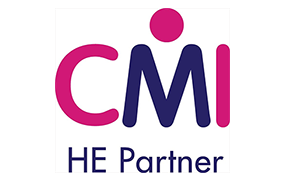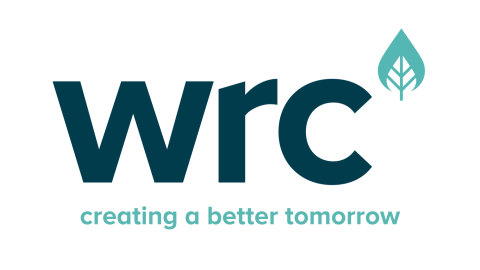MBA Water Management
Access to clean, safe water resources is pivotal for our ability to grow food, generate power, and protect ecosystems. This course equips you with the leadership skills, knowledge, and competencies to drive innovation and implement effective water management strategies. You'll learn how to promote water circularity, optimise water use efficiency, and integrate water resources management across various sectors to ensure a sustainable and resilient future.
Course overview
The UN goal to ensure safe and affordable drinking water for all by 2030 requires investments in infrastructure and technologies to manage the collection, storage, treatment and distribution of water and leaders with the skills and flexibility to respond to the challenge of climate change and related water threats.
This sectorial MBA in Water Management prepares students to become leaders and innovators in the water sector, with a focus on the Water-Energy-Food-Ecosystems Nexus (WEFE Nexus), business, environmental policies, and sustainable technology. You will gain key managerial knowledge for the water and environmental sectors, through the development of responsible leadership skills and water management expertise.
You will study sustainable business strategy, responsible leadership and financial decision making, which comprise the foundation of the MBA curriculum. Your specialist focus will be sustainable water management and water policy as well as modules on climate change and managing global soils.
The course aims to develop responsible leaders in water management with the knowledge and flexibility to successfully respond to complex problems within the integrated water, stormwater, and wastewater sectors. You can choose to focus on a specific challenge for your dissertation topic, which will be supported by a research skills module to equip you with the skills required to develop and execute your own research investigation.
“Water is the most vital natural resource on our planet. Today we are putting more pressure on water resources than ever before. Between rapidly growing populations and a shifting climate, water related stresses and risks are increasing rapidly. This MBA programme specialising in Water Management is vital for addressing worldwide pressing issues for the need of clean water resources, directly contributing to the UN Sustainable Development Goal 6- addressing global water challenges. The unique structure of the MBA Water Management programme merges businesses and industry acumen with environmental stewardship, equipping leaders of tomorrow to drive sustainable change within the integrated water sector challenges through innovation and impactful solutions.”
Professor Dr Kiran Tota-Maharaj, Professor of Water Resources Management & Infrastructure, Royal Agricultural University and Technical Director-Water, Wastewater and Environmental Engineering with the Water Research Centre Ltd (WRc Group).
UN Sustainable Development Goals: This programme has been designed to foster greater knowledge and awareness of the UN Sustainable Development Goals. These goals are mapped to our modules to ensure that at each stage of the programme we are identifying how these goals can be developed as part of business strategy and managed within a business.
"Excellent and worthwhile postgraduate degree programme addressing sustainable water management."
Emeritus Professor Saravanamuthu Vigneswaran, School of Civil and Environmental Engineering at University of Technology Sydney Australia (UTS) & founding director for The Centre for Technology in Water and Wastewater (CTWW) UTS, Australia.
This is a dual qualification. Upon successful completion of the degree you will be awarded membership and a Level 7 Diploma in Strategic Management and Leadership from the Chartered Management Institute, further enhancing your CV.
Accreditations and partnerships
We are delighted to work with a wider range of businesses, partners and accreditation organisations, some of which are shown below:




Course content
Learning on the MBA focuses on problem solving; you will draw on your own work experience, and that of your peers, as well as new learning from the modules to explore emerging challenges and to develop innovative solutions. You will question your own assumptions and develop new ways of thinking about your area of interest. The MBA in Water Management combines theoretical and practical learning, with industry case studies, guest lectures from relevant sectors, field trips and group projects. Students will have the opportunity to network with water professionals and stakeholders from various groups such as the Water Research Centre (WRc Group). Directed learning tasks will enable you to prepare well for class and to take an active part in discussion. Modules will be assessed through a variety of methods including business reports, presentations, case study analysis, decision-making exercises, and policy critiques, all of which are designed to blend management theory with professional practice.
In terms of workload, you should anticipate that the MBA is the equivalent of a full-time job. Part-time study over two years equates to approximately 50% of a full-time role. You will also find yourself occupied, should you choose to be, with the all the other opportunities that studying at the RAU offers, such as additional talks, student conferences and enterprise events.
Here at the RAU we are always looking for ways to better support our students. We recognise that a number of our students may be working or have caring responsibilities alongside studying which can sometimes make it difficult to attend every teaching session in person. As such we have the ability for you to join lectures and seminars through an alternative digital format in prior discussion with your programme leader. Please note that for international students on a student visa you are expected to attend your classes in person. Remote delivery is not an UKVI authorised mode of attendance for the taught element of your course and therefore non-attendance would affect your student visa.
Course structure
The course is studied full-time over a period of one year although you may also choose to study part-time over two or more years to fit around other commitments. The course is structured around eight core modules, followed by your choice of a research project which enables you to conduct an intensive study of an area of water management that interests you. We provide supervisory support for your research project (Dissertation) and discussions with your supervisor are often rewarding and motivating. The range of business and water management modules offered on the MBA have been informed by the requirements of a Master’s in Business Administration and by industry dialogue so you can be sure that you will have every opportunity to develop the leadership skills and specialist knowledge needed to succeed in the sector.
Your future career
As a potential MBA student you may already be well-placed in your chosen career and wish to take this time to develop additional skills and knowledge to progress further within it. You may be taking a career break to re-think your future or planning to transition from your management role to a position in the water, stormwater, or wastewater sectors. Whatever your career intentions, you can use your MBA Dissertation research to help you to achieve them, tailoring your research to suit your aims. Moreover, the opportunities to engage in industry dialogue with our range of contacts and to learn from our enterprise team may prompt new career ideas.
If you are interested in studying this subject but cannot commit to the full MBA programme it is also possible to study for a Certificate or Diploma in the subject.
What is a Postgraduate Certificate?
The PgCert - or Postgraduate Certificate - is the shortest of our Master's level offerings, which is completed by studying four modules (60 credits). It allows you to study a specific area of the course in depth but takes less time to complete than the MBA or PgDip.
The PgCert is a great way of fitting postgraduate study around a busy life. Full-time students can complete the course in as little as one year. Part-time students can choose to spread the course up to two years, giving you lots of time for thinking and writing between modules. It is ideal if you want to study a specific subject but would rather not commit to a full MBA with its attendant time and financial costs.
It can be a great way into a career in a new industry but if you desire to continue your studies, PgCert credits can be used to contribute towards a PgDip or even an MBA qualification later down the line. Completing studies using this route is often likened to building blocks – one step at a time – the first step being a PgCert.
Please note that overseas applicants who require a student visa cannot be considered for this course as the weekly contact hours do not meet the UKVI threshold for a full-time Student visa.
What is a Postgraduate Diploma?
The PgDip - or Postgraduate Diploma – is a Master's level course that sits between the PgCert and the full MBA. It allows you to study a subject in depth but without undertaking the Dissertation element. Consequently, it takes substantially less time to complete than the MBA, while still covering the same taught elements. To complete this qualification, you will take eight modules (120 credits).
Full-time students can complete the course in as little as two semesters (one year). Part-time students can choose to spread the course over up to two years, giving you lots of time for thinking and writing between modules. It is ideal for students who want to study a specific subject but would rather not commit to a full MBA with its attendant time and financial costs.
The PgDip can be a great way to boost your career, or enter a new industry. We recognise that life can be unpredictable so the PgDip is built to be as flexible as possible. Should you desire to continue your studies, PGDip credits can be used to contribute towards an MBA qualification later down the line. Conversely, if you need to cut your studies short for any reason, it is also possible to convert the PgDip to a PgCert after the completion of four modules.
*Please note that this type of study participation is only available to registered UK based students due to UKVI visa restrictions.
Modules
- Responsible Leadership and People Skills
- Sustainable Strategies for Business Excellence
- Research skills
- Sustainable Water Management
- Financial Decision-Making Skills
- Dissertation
- Climate Change and Sustainability
- Managing Global Soils in a Changing Climate
- Water Policy and Governance
A description of each module can be found here.
* Optional additions to the course will incur additional charges
Disclaimer information
The University has established various rules and regulations that you must agree to and follow if you accept an offer to study with us. View our full disclaimer notice.
Careers and graduate destinations
Opportunities include:
- Senior roles in the water charity sector
- Corporate or government advisors
- Environmental consultancies
- Leadership role in international NGOs
- Water security policy analysts
“This is an outstanding programme, with great content, beneficial for the Caribbean Water & Wastewater sectors.”
Mr. Kelvin Romain, Chief Executive Officer (CEO) of the Water & Sewerage Authority (WASA), Trinidad and Tobago, West Indies.
Entry requirements
Students will be expected to have:
- A minimum 2.2 honours degree from a UK university, or an equivalent academic qualification from a comparable international institution and a minimum of three years professional work experience at a management level (sector specific experience is not required)
- Students whose first language is not English must achieve a minimum IELTS score of 6.5 with no element below 5.5 or equivalent
- International students will also need to achieve IELTS Academic or equivalent at the appropriate level for your programme of study. English language requirements for international students.
- Mature applicants with lower qualifications but with extensive management experience may also be considered
Fees
2026-27 Applicants (September 2026)
For the academic year 2026-27 the tuition fees for this course are:
| UK | Overseas/EU | |
|---|---|---|
| Full-time | £12,000 per year | £22,000 per year |
| Part-time | Fees are calculated on a pro-rata basis depending on the number of modules taken. Please refer to Tuition Fees webpage | Fees are calculated on a pro-rata basis depending on the number of modules taken. Please refer to Tuition Fees webpage |
Tuition fees may be subject to an inflationary increase each year as set out in our Access and Participation Plan.
For full details, please visit the fees and funding webpage.
Please note: International students can study on a part-time basis only if they are in the UK with a different type of visa (other than Student Visa/Tier 4 General) that allows them to undertake part-time study and their visa does not expire prior to the end date of the proposed course of study.
Please contact admissions@rau.ac.uk before you apply to confirm your eligibility.
Scholarships
The University offers a range of generous fee waivers and bursaries. To find out more about the scholarships, awards and bursaries available, please visit the scholarships webpage.
Apply now for September 2026
To apply for a postgraduate course you need to complete an online application form. This can be found by selecting your preferred course option at the bottom of this box.
Alternatively, if you cannot access the online form please call Admissions on 01285 889912, or email admissions@rau.ac.uk.
We recommend you keep a copy of the completed form for your records.
Important Information for EU and Overseas applicants for PgDip: EU and Overseas applicants who wish to apply for the PgDip programme, and need a UK study visa to do so, should be aware that upon completion of their study they will not be eligible to apply for a Graduate Route visa.
Application deadline, September entry:
- EU and overseas applicants must submit their application by 29 June 2026
- UK applicants must submit their applications by 1 September 2026
Results deadline, September entry:
- EU and overseas applicants will need to meet their conditions by 31 July 2026
- UK applicants will need to meet their conditions by 14 September 2026
Application deadline, January entry:
- EU and overseas applicants requiring a study visa should submit their application by 1 December 2026 at the latest, applications received after this may be considered for September entry
- UK applicants should aim to submit their applications the latest by 5 January 2027
Results deadline, January entry:
- EU and overseas applicants will need to meet their conditions by 8 December 2026
- UK applicants will need to meet their conditions by 7 January 2027
Applicants will be notified via email once a decision has been made and decision letters will be emailed to you. If there is a deadline by which applicants must accept an offer of admission or pay a deposit, this will be stated in the offer letter.
Requests to defer the year of entry will be considered only when an applicant holds an Unconditional offer and needs to be submitted in writing to the admissions team. We cannot guarantee that requests will be granted. Decisions on deferral requests are considered:
- For September entry at the end of August
- For January entry at the end of January (or later)
If the deferral request is granted applicants will receive a new offer letter with tuition fees which are applicable to their year of entry, at the opening of the next admissions cycle.
Course options

Applying to the RAU for postgraduate courses


